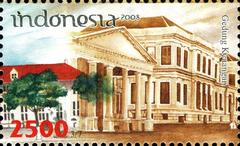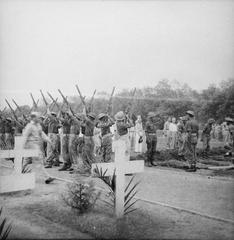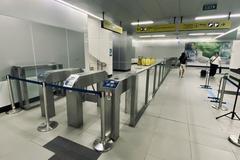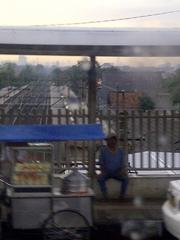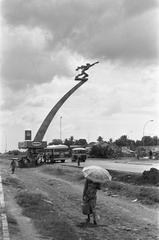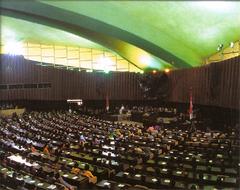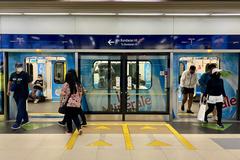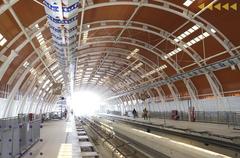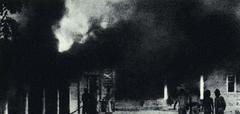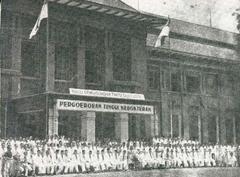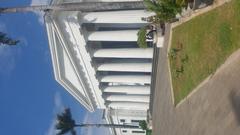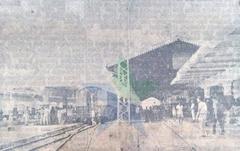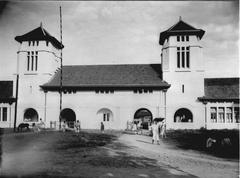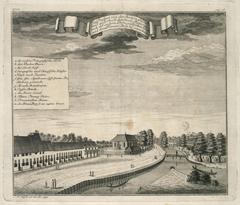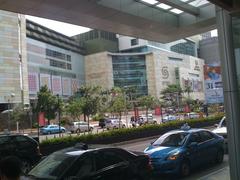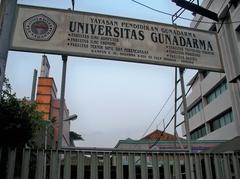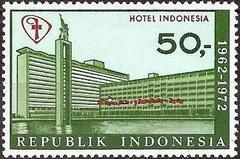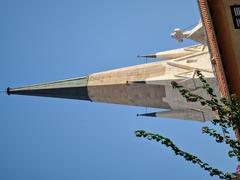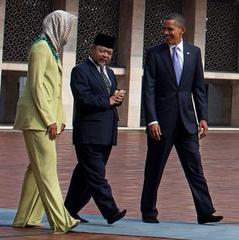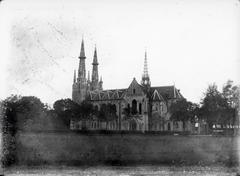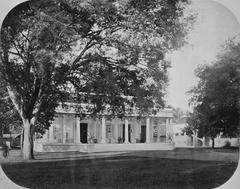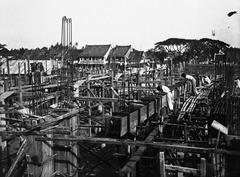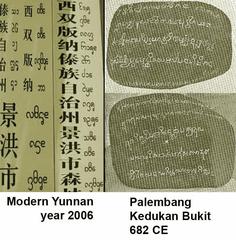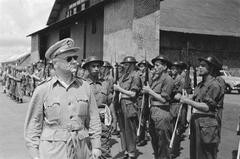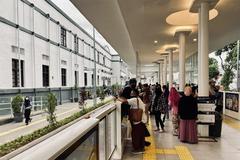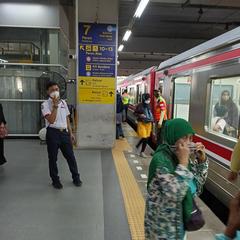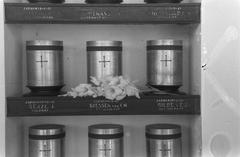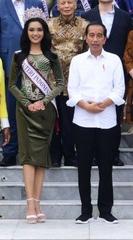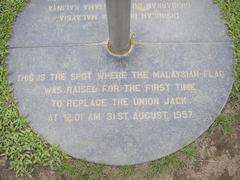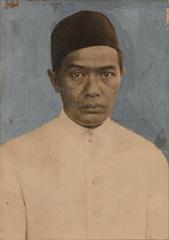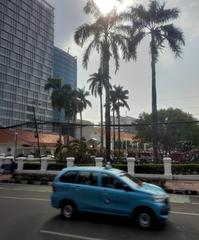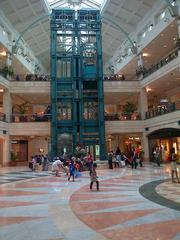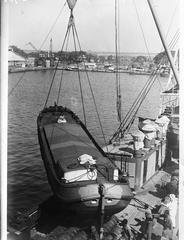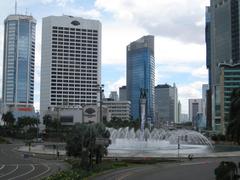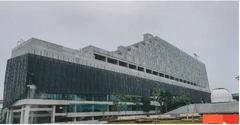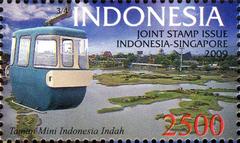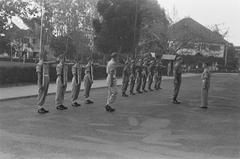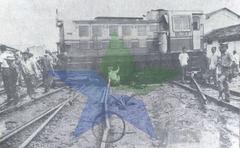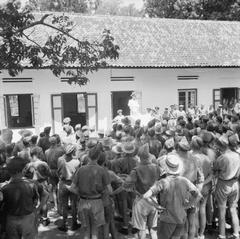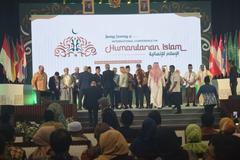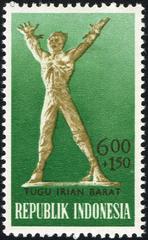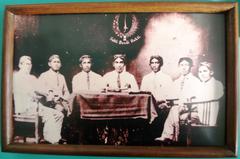
Jami Kampung Baru Inpak Mosque: Visiting Hours, Tickets, and Jakarta Historical Sites Guide
Date: 03/07/2025
Introduction: A Window Into Jakarta’s Multicultural Islamic Heritage
Jami Kampung Baru Inpak Mosque, situated in the historic Pekojan district of Jakarta, Indonesia, is a prominent symbol of the city’s diverse Islamic heritage. Founded between 1743 and 1748, the mosque is deeply connected to Jakarta’s vibrant multicultural communities, including Indian, Betawi, Javanese, and Arab traders who settled during the Dutch colonial era (Jakarta Tourism Board; Wikipedia). Its unique architecture—melding Javanese, Indian, Moorish, and colonial influences—reflects both spiritual values and the city’s layered history. The mosque is renowned for its multi-tiered pyramidal roof, intricate grapevine carvings, and robust timber pillars, all of which narrate the story of Jakarta’s cultural fusion (Mosqpedia; Anugerah Kubah).
More than an architectural marvel, Jami Kampung Baru Inpak Mosque remains a vital center for religious worship, education, and community life. Its ongoing restoration and preservation, supported by local authorities and heritage bodies, ensure the mosque continues to serve the community and welcomes visitors without charge. This guide offers essential information for those planning a visit, including practical details, historical insights, and recommendations on nearby cultural attractions.
Table of Contents
- Introduction
- Historical Foundation and Development
- Architectural Highlights and Conservation
- Social and Cultural Roles
- Notable Figures and Historical Events
- Visitor Information
- FAQ
- Conclusion
- Sources & Further Reading
Historical Foundation and Development
Jami Kampung Baru Inpak Mosque emerged from the growing Muslim community in the Pekojan district during the mid-18th century. Its foundation is closely tied to waves of migration and commerce in Batavia (now Jakarta) under Dutch rule. The mosque’s name, “Inpak,” derives from the Arabic “infaq,” emphasizing its roots in charity and community welfare (Jakarta Tourism Board). The area became home to Javanese, Betawi, Indian, and Arab Muslims, and the mosque quickly evolved as a religious and educational hub for these communities (Kompasiana).
Architectural Highlights and Conservation
The mosque’s architecture is a testament to Jakarta’s multicultural history. Its square plan and central soko guru (four main pillars) are characteristic of Javanese mosques, while the multi-tiered atap tumpang (pyramidal roof) and grapevine motifs reflect Indian and Moorish influences (Mosqpedia). Over the centuries, the mosque has undergone renovations, balancing preservation with the need for expansion. Notable conservation efforts in the 19th and 20th centuries used durable materials such as brick and stone to replace original timber structures, while restoration projects in recent decades have focused on retaining core features and decorative artistry (Jakarta Heritage Society).
The mosque is recognized as a cultural heritage site by Jakarta’s government, ensuring that all restoration work honors its original design and historical value (Cagar Budaya Jakarta).
Social and Cultural Roles
Jami Kampung Baru Inpak Mosque has always served as more than a place of worship—it is a community nucleus. Throughout colonial times, it hosted educational programs, Quranic recitations, public gatherings, and religious celebrations. It played a key role during the struggle for Indonesian independence, providing sanctuary for activists and uniting the community (Republika). Today, it continues to host major religious festivals, charitable events, and educational outreach, including the annual Maulid Nabi celebration and Ramadan iftars (Detik Travel; Anugerah Kubah).
The mosque is managed by the Yayasan Masjid Jami’ Kampung Baru Inpak and accommodates large congregations in its spacious prayer hall, reinforcing its social significance (Aktualitas.id).
Notable Figures and Historical Events
Among the mosque’s distinguished leaders was Kyai Haji Abdul Karim, a pioneering imam who advanced Islamic education in the early 20th century (Jakarta Post). The mosque’s archives—containing waqf records, marriage registries, and correspondence—offer a rich source for understanding Jakarta’s social and religious evolution. These documents, along with oral histories, underscore the mosque’s enduring community role.
Visitor Information
Visiting Hours & Admission
- Open: Daily, 8:00 AM – 5:00 PM. Some sources note opening as early as 7:00 AM; confirm locally before visiting.
- Admission: Free. Donations are welcome to support preservation and community programs.
- Note: Avoid visiting during Friday prayers or major religious events unless participating, as access may be limited.
Accessibility & Travel Tips
- Transport: Easily accessible via TransJakarta buses, commuter trains, or taxis. The mosque is located on Jalan Bandengan Selatan, Pekojan, West Jakarta.
- Mobility: Wheelchair-accessible entrances are provided, though some interior areas have uneven flooring.
- Etiquette: Dress modestly, remove shoes before entering the prayer hall, and be respectful during prayers or religious events.
- Guided Tours: Available on request, particularly during festivals or heritage events. Contact the mosque administration ahead of your visit.
Photography
- Photography is permitted. Please avoid using flash or taking photos during prayer times to respect worshippers.
Nearby Attractions
- Jakarta Old Town (Kota Tua): Colonial-era architecture and museums.
- Fatahillah Square: Historical hub of Jakarta.
- Sunda Kelapa Harbor: Jakarta’s ancient port.
- Glodok Chinatown: Explore Jakarta’s multicultural fabric.
- Local Markets: Sample Betawi and Indonesian Muslim cuisine.
Events & Guided Tours
- Attend special events like Maulid Nabi, Eid al-Fitr, and Ramadan iftars for a unique cultural experience.
- Heritage tours with storytelling and access to mosque archives are occasionally offered.
Preservation and Restoration
Restoration of the mosque has been a collaborative effort between local stakeholders and heritage organizations. The process prioritizes historical authenticity while integrating modern amenities for continued use. Techniques include:
- Structural reinforcement and use of traditional materials.
- Reversible interventions for future restoration.
- Sensitive integration of new facilities.
Ongoing maintenance is supported by community engagement and educational programs, ensuring the mosque’s sustainability as a living heritage site (Academia.edu; Jakarta Heritage Society).
Frequently Asked Questions (FAQ)
Q: What are the mosque’s visiting hours?
A: Daily from 8:00 AM to 5:00 PM. Confirm locally for special events.
Q: Is there an entrance fee?
A: No, but donations are appreciated.
Q: Are guided tours available?
A: Yes, by prior arrangement with mosque officials.
Q: Is the mosque accessible for people with disabilities?
A: Yes, with ramps at main entrances; some interior areas may have uneven surfaces.
Q: Can I take photographs?
A: Yes, but avoid flash and respect worshippers, especially during prayers.
Q: How do I reach the mosque by public transport?
A: Take TransJakarta buses or commuter trains to nearby stations; taxis and ride-sharing are convenient.
Visuals and Media
Include high-resolution images of the mosque’s exterior, tiered roof, soko guru (central pillars), and unique decorative details. Use descriptive alt tags such as “Jami Kampung Baru Inpak Mosque exterior Jakarta” and “Traditional pyramid roof at Masjid Kampung Baru.” Interactive maps and virtual tours are available via the Jakarta Tourism Board and Mosqpedia websites.
Conclusion
Jami Kampung Baru Inpak Mosque is a living monument that encapsulates Jakarta’s rich, multicultural past and dynamic present. It stands as a beacon of religious devotion, community resilience, and cultural synthesis. Whether you are interested in architecture, history, or spiritual exploration, visiting the mosque offers a meaningful connection to Jakarta’s heritage.
Plan your visit today and enhance your journey with guided walking tours and exclusive content available through the Audiala app. Follow us on social media for the latest updates on Jakarta’s heritage events and stories.
Sources & Further Reading
- Jakarta Tourism Board
- Wikipedia: Jami Kampung Baru Inpak Mosque
- Mosqpedia: Masjid Jami Kampung Baru Inpak Mosque
- Anugerah Kubah: Masjid Jami Kampung Baru Pekojan Jakarta
- Republika
- Aktualitas.id: Masjid Jami Kampung Baru Pekojan Warisan Imigran Muslim India
- Jakarta Heritage Society
- Academia.edu: The restoration of old mosques heritage in Pekojan Jakarta
- TripSavvy: Mosque Etiquette for Visitors

